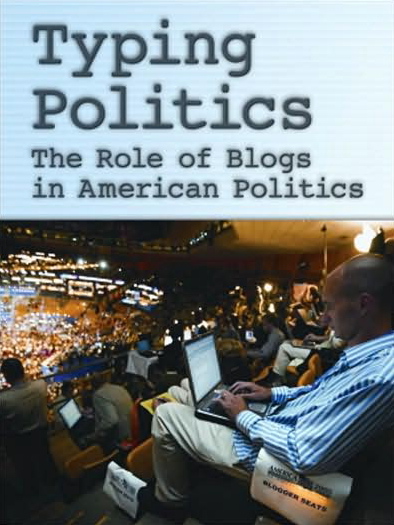
Richard Davis - Typing Politics: The Role of Blogs in American Politics
Oxford University Press | English | 2009-05-26 | ISBN: 0195373766 | 256 pages | PDF | 1,4 MB
Oxford University Press | English | 2009-05-26 | ISBN: 0195373766 | 256 pages | PDF | 1,4 MB
The power of political blogs in American politics is now evident to anyone who follows it. In Typing Politics, Richard Davis provides a comprehensive yet concise assessment of the growing role played by political blogs and their relationship with the mainstream media. Through a detailed content analysis of the most popular political blogs--Daily Kos, Instapundit, Michelle Malkin, and Wonkette--he shows the degree to which blogs influence the traditional news media. Specifically, he compares the content of these blogs to four leading newspapers noted for their political coverage: The Washington Post, The New York Times, The Wall Street Journal, and The Washington Times. He explains how political journalists at these papers use blogs to inform their reportage and analyzes general attitudes about the role of blogs in journalism. Drawing on a national survey of political blog readers, Davis concludes with a novel assessment of the blog audience. Compact, accessible, and well-researched, Typing Politics will be an invaluable contribution to the literature on a phenomenon that has reshaped the landscape of political communication.
"Political blog reading has become a daily activity for a small minority of political activists. One former State Department spokesperson said, “They’re the fi rst thing I read when I get up in the morning and the last thing I read at night.”13 A reporter for the New Republic said he reads ten to fi fteen blogs daily. One likely reason for the increased public awareness of blogs is news
media coverage of the blogging phenomenon. Coverage mushroomed in only fi ve years: there were three newspaper stories about blogs in 1999, 209 in 2001, 1,442 in 2003, and 3,212 in 2004.
A medium that acquires a significant audience and discusses politics constantly is bound to be considered of some political importance. The claims of blogging’s role, present and future, are hardly modest, and the most vocal advocates are bloggers themselves. Liberal bloggers believe they already have altered electoral outcomes. They claim they defeated Senator Joe Lieberman
(D-Connecticut) in the 2006 senatorial primary, although Lieberman, as an Independent, defeated blogger favorite Ned Lamont in the general election that year. Another claimed victory was the Democratic takeover of the U.S...Senate and House of Representatives in 2006. Liberal bloggers take credit for making possible the U.S. Senate wins of senators Sherrod Brown (D-Ohio), Jon Tester (D-Montana), Jim Webb (D-Virginia), and other Democratic candidates
that year.16 Conservative bloggers point to their own victories as well. They argue that they were instrumental in causing the withdrawal of U.S. Supreme Court nominee Harriet Miers. They also point to the early retirement of CBS News anchor Dan Rather after an embarrassing 60 Minutes II scandal as a blog triumph.
But these events are small potatoes compared to what many foresee as the broader role of the blogosphere. Specifi cally, news stories about blogs have emphasized the medium as a new tool for personal empowerment. One journalist opined that blogs have “given the average Jane the ability to write, edit, design, and publish her own editorial product—to be read and responded to by millions of people, potentially—for around $0 to $200 a year.”17 They emphasize
how “Joe Average Blogger” can revolutionize politics through blogging..." -- from Introduction
----------------
Now playing: Pink Floyd - WAR OF THE WORLDS (Album Complete Rare) [foobar2000 v0.9.6.8]
via FoxyTunes